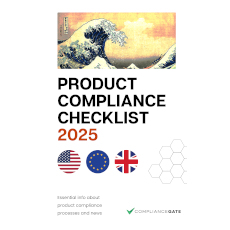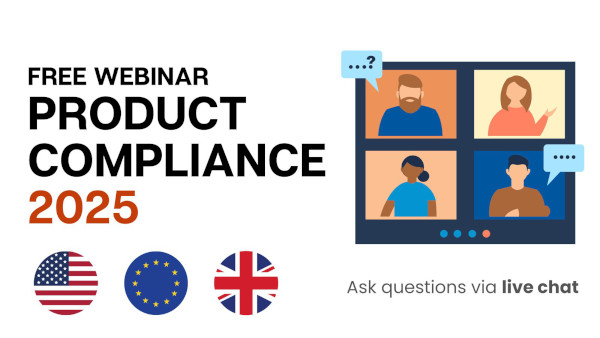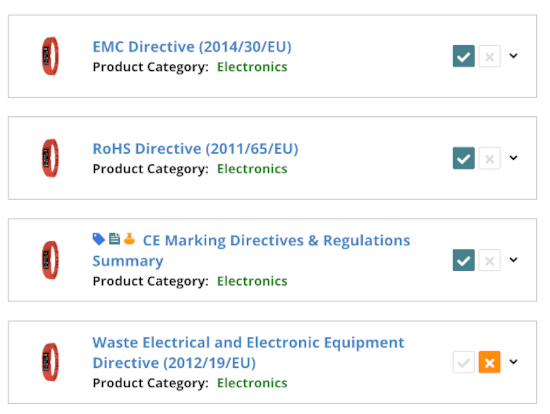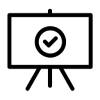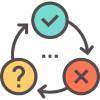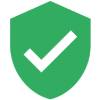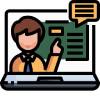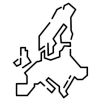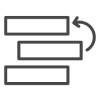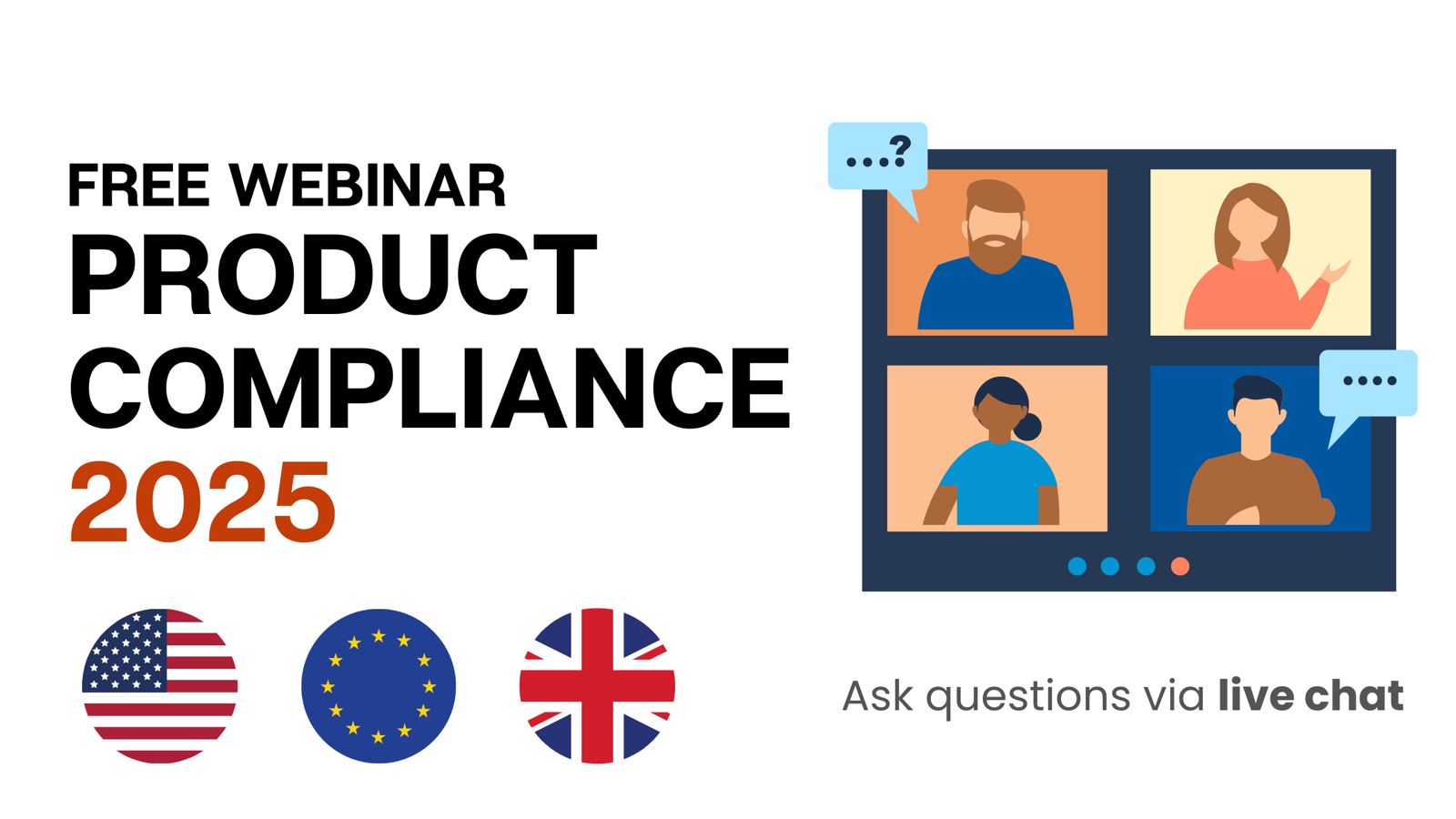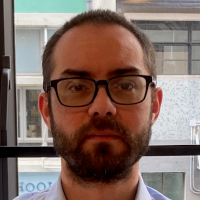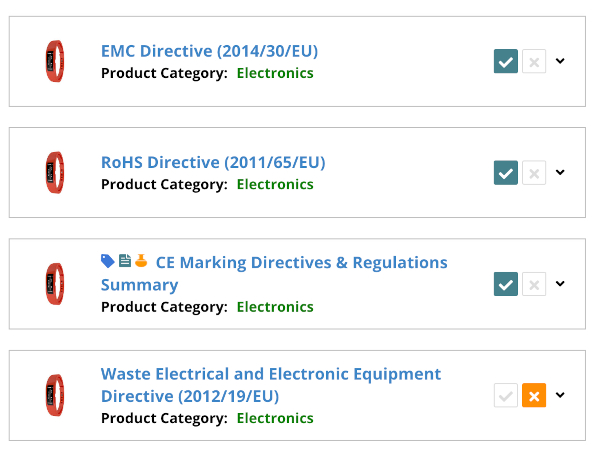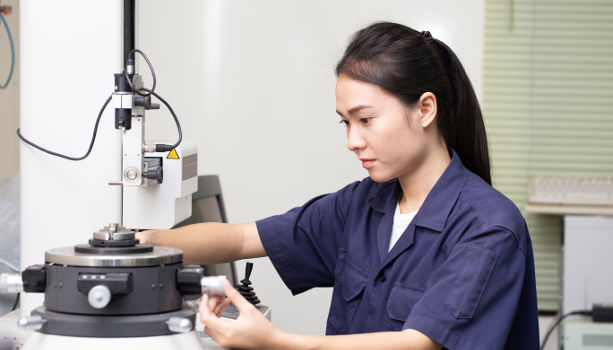
CPSIA compliance is mandatory for all children’s products manufactured or imported for the US market. Third-party lab testing is mandatory for such children’s products that fall within the scope of CPSIA. However, not just any testing company can issue valid test reports – only those on the list of CPSC-accepted labs.
Methodology
1. We have selected testing companies present on the List of CPSC-Accepted Testing Laboratories. Also, we have prioritized companies operating testing facilities in both the United States and Asia.
2. We do not list individual testing facilities. Instead, we list companies that operate CPSC-accepted lab testing facilities. Keep in mind that companies like SGS and TÜV Rheinland often operate multiple CPSC-accepted labs.
Related articles
a. CPSIA Requirements For Importers & Manufacturers: A Complete Guide
b. CPSIA and ASTM F963 Product Lab Testing: A Complete Guide
c. List of CPSIA Consulting Companies: Our Top 8 Picks
Content Overview

FREE CONSULTATION CALL (US, EU & UK)
- Request a free 30-minute call with Ivan Malloci to learn how we can help you with:
- Find product requirements
- Certification and labeling
- Lab testing
QIMA
QIMA offers CPSIA testing for a wide range of children’s products, including toys, rattles, and pacifiers. This includes testing for
- Lead content
- Phthalates content
- Flammability
- Mechanical hazards
It offers testing against specific substances, including lead and phthalate testing. Additionally, it can help you to assess how many samples should be tested in order to draft a reasonable testing plan.
Here are three examples of parts for which QIMA is accepted by the CPSC:
a. 16 CFR Part 1615 – Standard for the Flammability of Children’s Sleepwear: Sizes 0 through 6X (FF 3-71)
b. 16 CFR Part 1616 – Standard for the Flammability of Children’s Sleepwear: Sizes 7 through 14 (FF 5-74)
c. 16 CFR Part 1510 – Requirements for Rattles
QIMA has several labs around the world, including ten that are accepted by CPSC, including in the United States, Germany, China, and Vietnam.
QIMA lists various accreditations and memberships on its website. Those accreditations include ISO 9001, ANSI National Accreditation Board, and the CPSC (CPSIA). Its memberships include Amfori, Sedex, and Promotional Products Association International.
Services
- Testing plans
- Testing integration within quality inspections
- Manufacturing audits
- Tracking label reviews
HQ location: Hong Kong, China
Eurofins
Eurofins can help you test numerous children’s products, including electronics, textiles, toys, and childcare products. Here we list a few parts for which the company is CPSC-accepted:
a. 16 CFR Part 1505 – Requirements For Electrically Operated Toys Or Other Electrically Operated Articles Intended For Use By Children
b. 16 CFR Part 1501 – Method For Identifying Toys And Other Articles Intended For Use By Children Under 3 Years Of Age Which Present Choking, Aspiration, Or Ingestion Hazards Because Of Small Parts
c. 16 CFR Part 1513 – Requirements for Bunk Beds
Eurofins’s CPSC-accepted testing, inspection, and certification facilities include labs in the United States and Asian countries such as China, Indonesia, and Malaysia.
The company has numerous accreditations. Here are two examples of its location-based accreditations:
- China – CMA, CNAS
- United States – ISO, A2LA
Services
- Labeling review
- Risk assessments
- Fault analysis
HQ location: Luxembourg City, Luxembourg
Intertek
Intertek is a third-party laboratory that can help you test products, such as toys and nursery products per CPSIA requirements. For example, the company is CPSC-accepted for the following safety standards:
a. 16 CFR Part 1227 – Safety Standard For Carriages And Strollers
b. 16 CFR Part 1232 – Safety Standard For Children’s Folding Chairs And Children’s Folding Stools
c. 16 CFR Part 1217 – Safety Standard For Toddler Beds
The company has CPSC-accepted facilities in the Americas, Europe, and Asia. For instance, it has facilities in many Chinese provinces and several US states.
It also has various accreditations. Here are some examples:
- United States – ANSI, A2LA
- Asia Pacific – BSMI, TLAS
Services
- Guidance on compliance requirements
- Product assessment
- XRF product screening
- Electronic filing of product certifications
- Education and training
- Consulting
HQ location: London, United Kingdom
SGS
SGS is another example of an international, CPSC-accepted third-party testing company that can test products such as toys and pacifiers. Its testing services include mechanical, physical, and chemical testing, as well as result interpretation, failure analysis, and material recommendations.
Here are a few examples of parts for which SGS can test for:
a. 16 CFR Part 1250 – Safety Standard Mandating ASTM F963 For Toys
b. 16 CFR Part 1307 – Prohibition Of Children’s Toys And Child Care Articles Containing Specified Phthalates
c. 16 CFR Part 1510 – Requirements for Rattles
SGS has numerous CPSC-accepted facilities in the EU, the Americas, and Asia. For example, it has labs in the United States, Mexico, Germany, and China. Further, SGS has many accreditations, including ISO/IEC 17025 and ANAB.
Services
- Consultancy programs
- Training packages
- Certification services
HQ location: Geneva, Switzerland, Country
Bureau Veritas
Bureau Veritas is an accredited global testing and certification company that offers CPSIA product testing and certification services. It can test products such as toys and juvenile products to standards such as ASTM F963.
It also has an online application called Product Technical Folder that allows participants in the supply chain (e.g., importers and manufacturers) to upload documentation and consequently demonstrate and track product compliance.
Here are three examples of standards for which Bureau Veritas is accepted by the CPSC:
a. 16 CFR Part 1615 – Standard for the Flammability of Children’s Sleepwear: Sizes 0 through 6X (FF 3-71)
b. 16 CFR Part 1616 – Standard for the Flammability of Children’s Sleepwear: Sizes 7 through 14 (FF 5-74)
c. 16 CFR Part 1215 – Safety Standard For Infant Bath Seats
The company has multiple CPSC-accepted facilities worldwide, including in the United States, Spain, Cambodia, and China. Bureau Veritas has many accreditations, including from CPSC, and A2LA.
Services
- Product specification development
- Consultation
- Documentation storage
- Children’s Product Certificate (CPC) generation
HQ location: Paris, France
TÜV Rheinland
TÜV Rheinland is a third-party lab that offers product testing and certification to the CPSIA’s requirements. On its website, it claims to provide CPSIA testing for products and materials such as:
- Textiles
- Plastics
- Rubber
- Toys
We list here three examples of safety standards for which TÜV Rheinland is accepted by the CPSC:
a. 16 CFR Part 1232 – Safety Standard for Children’s Folding Chairs and Stools
b. 16 CFR Part 1217 – Safety Standard for Toddler Beds
c. 16 CFR Part 1235 – Safety Standard for Baby Changing Products
TÜV Rheinland has CPSC-accepted labs in the United States, China, India, and other Asian countries.
It lists its accreditations on its website, including A2LA, IECEE, and EMSD.
Services
- Risk and responsibility assessments
- Product assessments
- Strategy guidance
- Factory audits
- Inspection services
HQ location: Cologne, Germany
Underwriter Laboratories (UL)
UL offers to test children’s products, such as toys, apparel, accessories, and footwear. It can test for flammability, sharp points and edges, and chemicals. Here are a few parts or standards that UL is CPSC-accepted for:
a. 16 CFR Part 1511 – Requirements for Pacifiers
b. 16 CFR Part 1230 – Safety Standard for Frame Child Carriers
c. 16 CFR Part 1226 –Safety Standard for Soft Infant and Toddler Carriers
The company has CPSC-accepted labs in the United States, Turkey, China, and other Asian countries.
It also has several accreditations, such as from the National Accreditation Board for Certification Bodies (NABCB).
Services
- Restricted substance evaluation
- Toxicological risk assessments
- Regulatory testing
- Label evaluation and verification
HQ location: Northbrook, Illinois, United States
TÜV SÜD
TÜV SÜD can test children’s products to CPSIA requirements. It provides certification services and also has a web page where you can search for your TÜV SÜD-issued certification by entering items such as:
- Certification ID number
- Product model
- Certificate holder’s name
Here are a few examples of parts that TÜV SÜD is CPSC-accepted to test for:
a. 16 CFR Part 1307 – Prohibition Of Children’s Toys And Child Care Articles Containing Specified Phthalates
b. 16 CFR Part 1219 – Safety Standard for Full-Size Cribs
c. 16 CFR Part 1510 – Requirements for Rattles
TÜV SÜD has four CPSC-accepted test labs; two are in China, and the others are in Singapore and India, respectively. It is an OSHA-recognised NRTL and A2LA accredited.
Services
- Documentation review
- Consultation
HQ location: Munich, Germany
DEKRA
DEKRA offers to perform chemical safety tests, mechanical safety, and flammability tests. Its testing services include the following product groups:
- Toys and stuffed toys
- Baby and toddler products
- Children’s electronics
- Jewellery for children
- Modeling clay, finger paints
Here are three parts for which DEKRA is accepted by the CPSC:
a. 16 CFR Part 1511 – Requirements for Pacifiers
b. 16 CFR Part 1505 – Requirements For Electrically Operated Toys Or Other Electrically Operated Articles Intended For Use By Children
c. 16 CFR Part 1610 – Standard for the Flammability of Clothing Textiles
DEKRA has four CPSC-accepted labs – two in Germany, and two in China.
DEKRA’s accreditations include A2LA, and CNAS. It also lists the following ISO certificates on its website:
- ISO 9001
- ISO 27001
- ISO 45001
- ISO 14001
- ISO 17025
Services
- Substance analysis
- Certification
HQ location: Stuttgart, Germany


